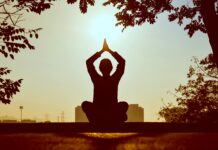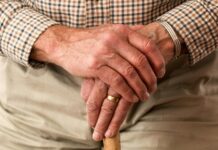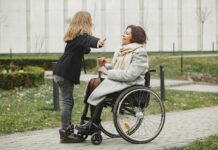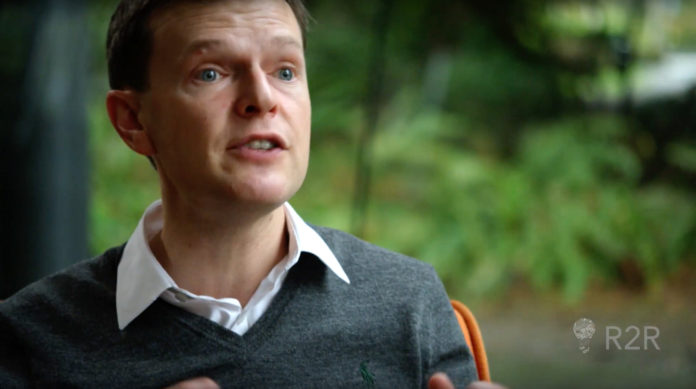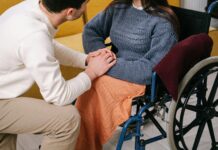Luke Clark is a professor in the Department of Psychology and the Director of the Centre for Gambling Research at the University of British Columbia. We asked him everything from what inspired him to become a researcher to what he is reading in hopes of giving you a better understanding of what goes on outside the lab for one of the best minds in Canadian research.
What inspired you to become a researcher?
When I was about age 16 at high school, I was really struggling to decide what to read at university. My parents wanted me to be a dentist, but I had some reservations about that (I was quite clumsy, for one). I started reading some intro psychology books like Hans Eysenck’s Sense & Nonsense in Psychology, and Colin Blakemore’s Mind Machine, and I realized this was exactly what I’d been looking for. This was a highly scientific discipline, elegant experiments, applied to real-world problems, and at the same time it was nothing like the sciences I’d been studying at school.
What do you like most about your work?
Gambling research is quite a small field, it’s a young field, and it’s at a crossroads between several different disciplines: psychology, psychiatry, neuroscience, economics and public policy…. As a scientist, I find this a really exciting combination – it means there’s a lot of research that needs to be done, you encounter ideas from very different perspectives, and I’ve realized that certain assumptions that are taken for granted in one field can be completely foreign to another.
What do you envision in the future of your field?
The science behind gambling has come a long way in the past decade: there’s a much greater awareness now of problem gambling and its relationship to addiction, and that this is serious mental health problem that can destroy lives. At the same time, opportunities to gamble have continued to grow, for example the expansion of online gambling to mobile devices. I feel we’re reaching a tipping point where governments around the world are waking up to their responsibilities here, and this has led to the field of ‘responsible gambling’. Ultimately, the solutions rely on how scientific research actually feeds back to change public policy, and I think we’ll start to see more of that in the next few years.
How will your research make a difference in people’s lives?
As with alcohol and other substances of abuse, a lot of people gamble for fun and don’t experience negative consequences. But for a minority of people, their gambling escalates and becomes problematic. How can we tell these two groups of people apart? Are those differences all about neurobiological disposition, or are there important differences between forms of gambling, or maybe in how different games affect different people? If we have better answers to these questions, we can intervene before the problems start, and we can target our interventions to the people who are most at risk.
What advice would you give to young researchers?
It can be hard to know when to say yes and when to say no in research. Starting out, at grad school, it’s a good idea to say yes to basically everything – giving talks, peer review, collaborations, media requests – the whole lot. But within a few years, especially when you’re setting up your own lab, you need to start saying no to lots of things – in fact, lots of the same things you were previously saying yes to! And I remember this felt very conflicting at the time.
What do you read?
I’m terrible at reading academic books, I buy them and never read them. I read a lot of old crime novels – I started out on Hammett & Chandler, and I’ve followed a trail from there, so at the moment I’m reading Jim Thompson, Cornell Woolrich, and Georges Simenon. It’s funny how the writing style of the hard-boiled authors has a lot in common with good scientific writing: concise, short sentences, and every word serves its purpose.
What’s on your iPod/CD collection/turntable?
I have a 45-minute drive to work, and a friend gave me some advice to record my lectures on my iPhone so that I can play them back on my commute to work, to prepare for class. And it’s actually a great tip, I’d really recommend it. But 2 months into our term here, it means right now I’m sick of the sound of my own voice, and I’m looking forward to getting back to some podcasts and audio books. It turns out I can finish academic audiobooks; I’m enjoying Richard Thaler’s ‘Misbehaving’ at the moment.
What do you like to do for fun?
My family and I moved to Vancouver two years ago, and it’s a wonderful place to live, particularly if you like outdoor activities. The scenery is beautiful, there’s trails and hiking everywhere. We’ve been getting into skiing this winter, and within a couple of months we’ll be back on the beach for the summer – we live 10 minutes from both. It’s pretty cool to live in a place where you can do that.


